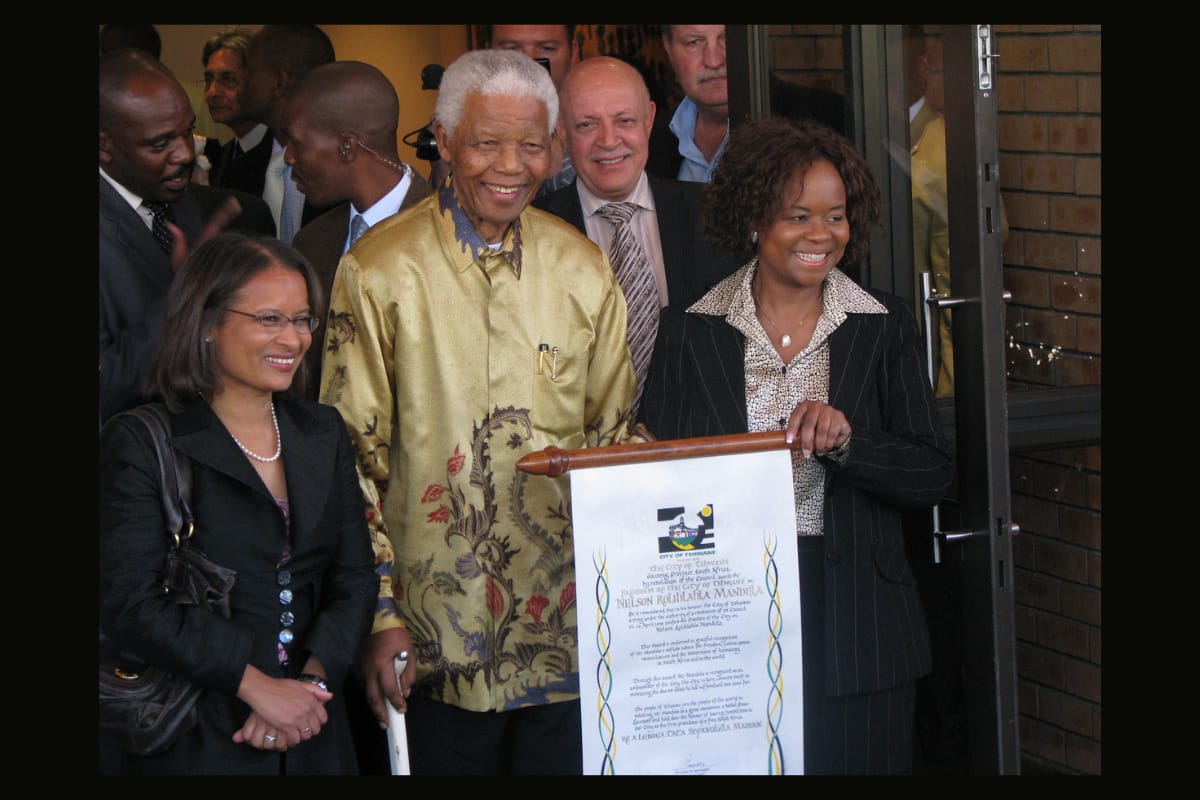If we travel back in time to the year 1948, we’d find that many people across the globe were still recovering from—and celebrating the end of—World War II, which happened three years prior. But in South Africa, things were only getting worse.
The National Party prevailed in the country’s election that year, and government leadership codified Apartheid—the official practise of segregation. What this did was divide the country racially into four groups: White/European, Black, Coloured (mixed race) and Asian/Indian. Though the vast majority of the population was black, the white officials in charge made the remainder of the races subservient to them.
In the two decades that followed, laws were enacted to:
- Separate the residences of each race by district.
- Prevent sexual intercourse and marriage between Whites and Non-whites.
- Offer Black citizens a lesser educational system (they also banned Black students from attending White universities).
- Remove the voting rights of Coloured citizens.
- Punish those who opposed Apartheid with indefinite detention.
And that’s just a partial list.
By the 1950s, a young lawyer named Nelson Mandela became active in the resistance, participating in various acts of civil disobedience and boycotts to oppose these injustices. Because peaceful attempts had been met with violence from the government, Mandela formed an armed group called “Spear of the Nation.” In 1962, he was arrested for his actions in the resistance, and a year later, he and seven of his colleagues were sentenced to life in prison.
Enduring inhumane conditions and abuses while incarcerated, Mandela sustained 27 years behind bars, missing the funerals of his mother and one of his sons. He continued to fight on the inside, writing hundreds of letters to leaders (in addition to his family) and improving conditions for prisoners while sustaining his advocacy to end Apartheid.
In 1990, Apartheid finally ended, and Mandela was released from prison. Three years later an interim constitution was adopted, and in 1994 (at age 75), he became the first democratically elected president of South Africa. He served a 5-year term and continued to better his country until his death in 2013.
Each year on this day, the world celebrates Nelson Mandela International Day to honour his life and legacy.
The Nelson Mandela Decade of Peace (2018 – 2028)
In 2018, a United Nations Declaration was established to observe a decade of peace in Mandela’s honour. The leaders pledged:
“We resolve to move beyond words in the promotion of peaceful, just, inclusive and non‑discriminatory societies.”
Though unable to prevent the wars that continue, many allies and organisations have participated with various acts to advocate for peace each year of the observance.
- In 2018, based on the theme ‘Actions Against Poverty,’ various groups worldwide participated in environmental projects and other work to sustain vulnerable areas.
- In 2019, volunteers in Brooklyn, NY, served healthy meals to marginalised groups in the city.
- In 2020, during the pandemic, virtual activities were held worldwide due to the limitations of the lockdown.
- In 2021, an ActNow challenge was issued worldwide to preserve the environment.
- In 2022, volunteers cleared a park in New York (that had strong ties to Mandela’s movement) of litter, and weeded overgrown areas.
- In 2023, the Houghton run brought activists together at historical sites where Mandela lived and worked in South Africa.
Actions for the 2024 Observance
If you want to pay tribute to Nelson Mandela this week, in addition to The UN’s virtual and in-person events, those in Johannesburg can participate in The Mandela Day Walk & Run on Saturday or you can walk/run in a virtual capacity from anywhere in the world.
If you’re in South Africa, you can visit the acclaimed Apartheid Museum. The prison where Mandela was held on Robben Island also welcomes visitors. The renowned “Madiba” statue is worth a visit if you’re in Cape Town.
In the U.S., you can see the statue of Nelson Mandela in New York. In the U.K., you can visit one of the few Nelson Mandela statues that was unveiled while he was still alive, in London (Parliament Square ).
If you’re unable to participate in any of the official events or tour any of the Mandela sites, you can still help promote peace in your own community. You can by share quotes from his messages over the years, get inspired by his legendary speeches, utilise free resources for children to teach peace at a young age, or search for a volunteer position near you that promotes a peaceful culture.
Even in a small way, we can all do something to honour the legacy of this incredible world leader. 🙏
Photo: Used with Creative Commons licence from South Africa The Good News.
To donate to TWFF’s various projects, which advocate for the Conservation of Life, start here.



Thank you for sharing. Brought back memories friend and close neighbor born in Capetown 1936, grandfather President Capetown University. Went on to Cambridge, then work in Canada and settled in Brooklyn with family. I was friend and close neighbor. He became very successful worldwide. I was their decorator and assistant in Real Estate. He perished in the Pan Am Lockerbie tragedy and I was active with the group Pan Am 103 and talked many times to Police there in Scotland. He was a brilliant kind witty generous man truly missed. Many talks about Mandela and life in Capetown growing up.… Read more »
This essay touches my heart and reminds me of the peace so many strive for. Thank you for sharing this with us, and for giving us ideas in how to help spread the actions and message of peace!
Wishing you love, peace and kindness! 💙🕊️
Thank you Even Though this is not that long ago. This should not be forgotten. This is a REAL Important Historical moment that We don’t have a lot of.
Thank you Both for your Hard Work Truly Appreciate it.